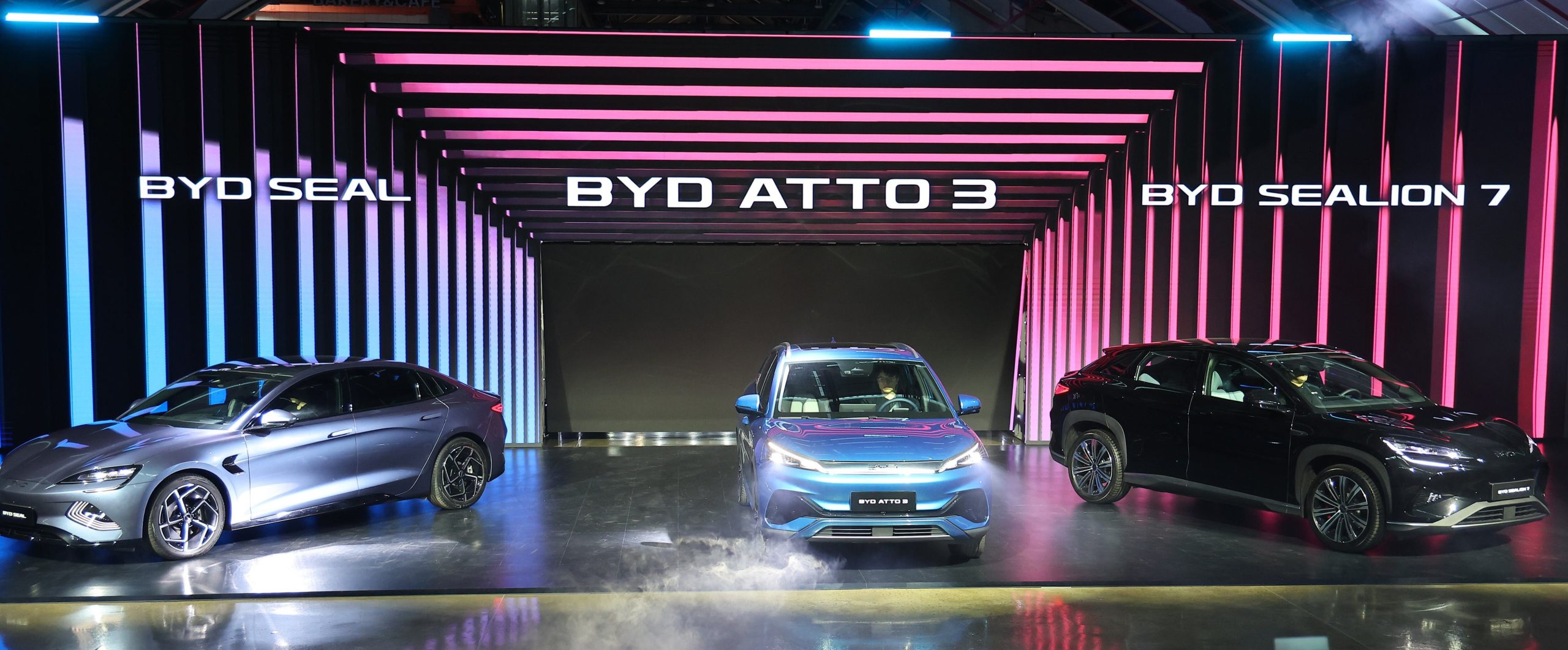BYD’s Struggles in the South Korean Market
Chinese electric vehicle manufacturer BYD has not managed to make a significant impact in the South Korean market six months after its entry. The primary reasons for its underwhelming performance include low consumer trust in Chinese cars and a continued decline in electric vehicle demand.
According to data from market tracker Carisyou, as of July 13, BYD sold 1,337 units in South Korea during the first half of this year, placing it 14th among all imported car brands. In the category of volume sellers excluding ultra-luxury brands, BYD ranked near the bottom alongside Honda and Peugeot.
Although BYD officially launched its operations in January, delays in subsidy approvals by the Ministry of Environment caused a postponement in customer deliveries until April. In April, the company sold 543 units, which was the highest sales figure for a single-trim imported car during that period. However, sales dropped significantly to just 220 units in June.
The automotive industry had high expectations for BYD, given its position as the world’s largest electric vehicle maker, surpassing Tesla, and its reputation for advanced battery technology. While not officially announced, reports suggest that BYD aims to sell over 10,000 units domestically this year.
Experts point to several factors contributing to BYD’s weak sales. One key issue is the limited range of models offered. During the first six months of the year, BYD only sold the compact SUV Atto 3 in South Korea. This narrow product lineup was insufficient to drive a breakthrough, as demand in the region is stronger for mid-sized sedans and SUVs.
Despite being priced about 10 million won lower than domestic rivals such as the Hyundai Kona Electric and Kia EV models, the Atto 3’s value advantage was overshadowed by aggressive discounts from Hyundai and Kia. This pricing strategy made it difficult for BYD to stand out in a competitive market.
Another factor affecting BYD’s sales is the prolonged slump in the electric vehicle market. Hyundai’s flagship electric model, the Ioniq 5, saw a 3.6% drop in first-half sales year-on-year, with June sales down 18.8%. Due to weak demand, Hyundai temporarily halted production of the Ioniq 5 and Kona Electric at its Ulsan plant.
Some industry observers believe that BYD’s sales could improve in the second half of the year. The company plans to introduce new models, including mid-sized sedans and SUVs, which are more in demand in South Korea. However, others caution that unless BYD offers a significant price advantage over local competitors like Hyundai and Kia, it will struggle to gain a foothold.
BYD has set the price of its second domestic release, the mid-sized sedan Seal, at 46.9 million won. A comparable model from Hyundai, the Ioniq 6, starts at 46.95 million won. BYD also plans to launch the mid-sized SUV Sealion 7 later this year.
An industry insider noted that last month, BYD faced financial strain due to overproduction in China and discounted prices there by over 30%. “If they sell the same cars in Korea at prices similar to Hyundai and Kia, it will be hard to attract consumer interest,” the insider said. This suggests that BYD may need to reconsider its pricing strategy if it hopes to succeed in the South Korean market.






